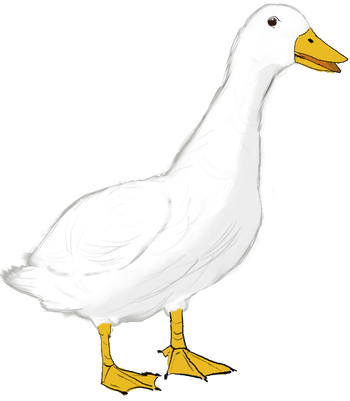Duck
Duck

Ducks were a familiar sight along the rivers, ponds, and marshes of the Wild West. With their sturdy bodies, webbed feet, and unmistakable quacking, they were both wild game and barnyard companions for frontier families.
Wild ducks — such as mallards, pintails, and teal — migrated through the plains in great flocks, providing a valuable food source for hunters. A well-aimed shot could mean fresh meat on the table when cattle or crops ran lean. Their eggs were gathered too, offering nourishment to settlers and Indigenous peoples alike.
Domestic ducks were also raised on homesteads, prized for their eggs, meat, and down feathers. Families often kept them near ponds or streams, where they fed on insects and plants, keeping farms cleaner of pests.
In folklore and everyday talk, ducks often symbolized adaptability — able to thrive on water, land, or in the air. They could be noisy, stubborn, or comical, but they were reliable providers. On the frontier, a few ducks in the yard meant security, while a flock overhead at sunset promised the rhythms of nature were still steady and true.